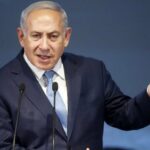From all indications the election year of 2023 will likely be a humdinger. With President Buhari constitutionally out of reckoning for the presidential seat having served his mandatory two terms, it will be an all comers affair. All bets are off regarding the names being bandied about with expansive references to their suitability, political connections, resources, etc. None of them can be too sure at this point in time of clinching the ticket of a political party or even the presidency. It is certainly no slam dunk for any of them.
However that does not prevent us from examining the various claims and tendentious statements being made by personalities and groups as to how the succession to President Buhari should pan out. In this regard it will be pertinent to refer to the statement of claims being made by persons and groups which in many ways represent the perspective of the geopolitical areas of the country as to where the next president should come from.
The strident cry from the South-East that it is the turn of the area to produce the next president has gained such a strong traction that it cannot easily be dismissed with cavalier disdain. In the perspective of Robert Obioha political analyst and columnist – in 2023 the South-East deserves it more than any part of the country on the simple reason that nobody from that area has ever made the position. His analogy is drawn from three persons eating from the same plate. Whereas the other two had helped themselves each to the pieces of meat available, both of them still want to take the remaining piece of meat which should be left to the other guy. When I asked him how the South-East expects to clinch the presidency when the area is not known for voting in massive numbers, his answer was that the formula used in 1999 where the two main political parties were compelled to field two candidates from the South-West – Olusegun Obasanjo and Olu Falae – should be applied. In pursuance of this both the ruling All Progressives Congress Party (APC) and the opposition Peoples Democratic Party (PDP) should field their presidential candidates from the southeast in 2023.
“Look Iliya, the South-East despite its contribution to the economic well-being and our commitment to Nigeria, have been marginalised and alienated from the critical decision making positions. With only five states, the only way a president can emerge from this area is if the 1999 formula is used,’’ he added for emphasis.
For the South-West, it is matter of quid pro quo. The argument here is that were it not for the support of the South-West mobilized by Asiwaju Bola Tinubu, President Buhari would probably not have become president in 2015. This support was again repeated in the 2019 elections and the South-West believe, for this, they have an IOU to be considered not just for the ticket of the ruling APC but the presidency in 2023 as well. For the South-South which produced the penultimate president of Nigeria in Goodluck Jonathan, there has not been any noticeable demand that the next president should come from the area in 2023 for discernible reasons. Nonetheless the pervading expectation is that should there be a stalemate between the South-East and South-West on which of them should produce the president come 2023, the South-South would definitely present itself as a consensual option. And there are a number of personalities from the area secretly hoping and oiling their political machines to hit the ground running should this come up.
How does the north figure in all these and what are its permutations as regards 2023?
Firstly it is to the north that three southern zones are looking up to actualize their claims to the presidency come 2023. All the southern zones are looking up to President Buhari to “anoint’’ one of their own in the hope that having secured the president’s support it will be easy to transfer the massive votes of the North to whoever he gives the nod.
I sat down with a northern political grandee on a cold December night in his ornate inner sitting room in a leafy area of Kaduna to discuss this.
“Do we really want to sustain democracy and grow this country?” he asked. “What happened in 1999 was an aberration to democracy and should never have happened. It was the handiwork of Babangida and Abdulsalam to impose Obasanjo in order to assuage their guilt on the annulment of June 12 elections. It had nothing to do with the North or even with the majority of the political class. IBB’s plan was to impose Obasanjo so that once he was through he will come back. It was the reason he said he was stepping aside. But he later told me in that he regretted it because Obasanjo wanted to finish him.’’
In the perspective of this northern figure, any thought of President Buhari’s “anointing’’ in 2023 is a waste of time because it is not in his nature. And when the president tried it rather reluctantly in the past, he regretted it as those that he so supported came back to betray him. The president would rather that those that want to succeed him go through the political crucible like he did.
 Join Daily Trust WhatsApp Community For Quick Access To News and Happenings Around You.
Join Daily Trust WhatsApp Community For Quick Access To News and Happenings Around You.


